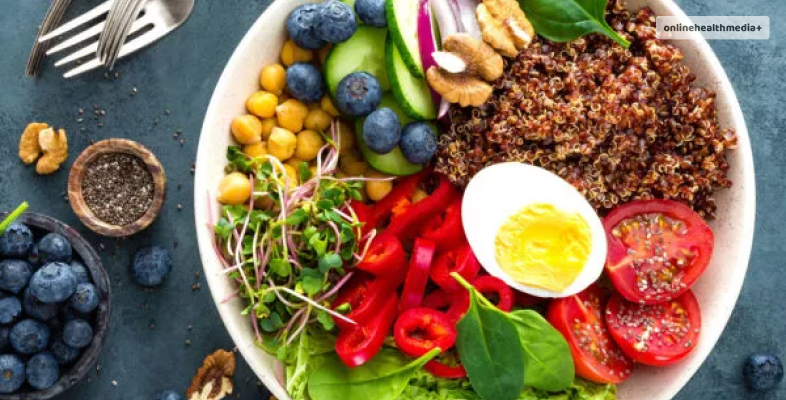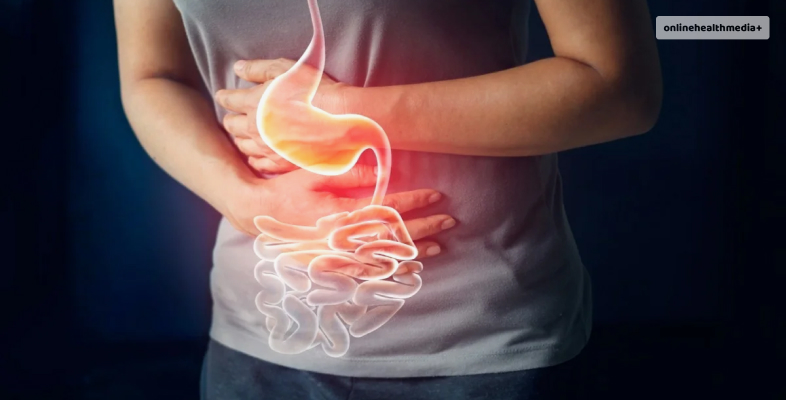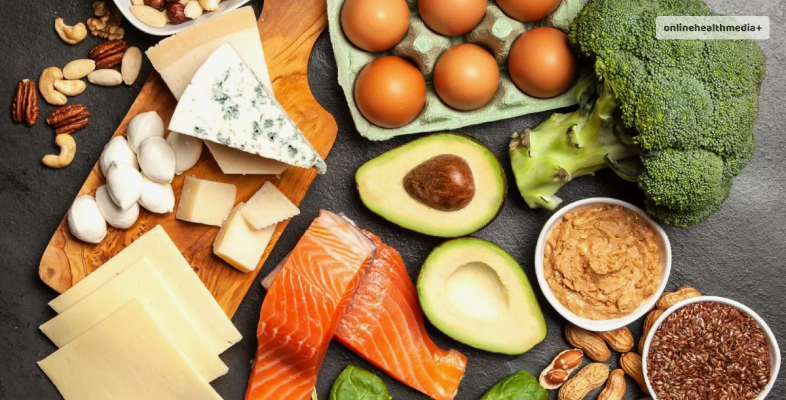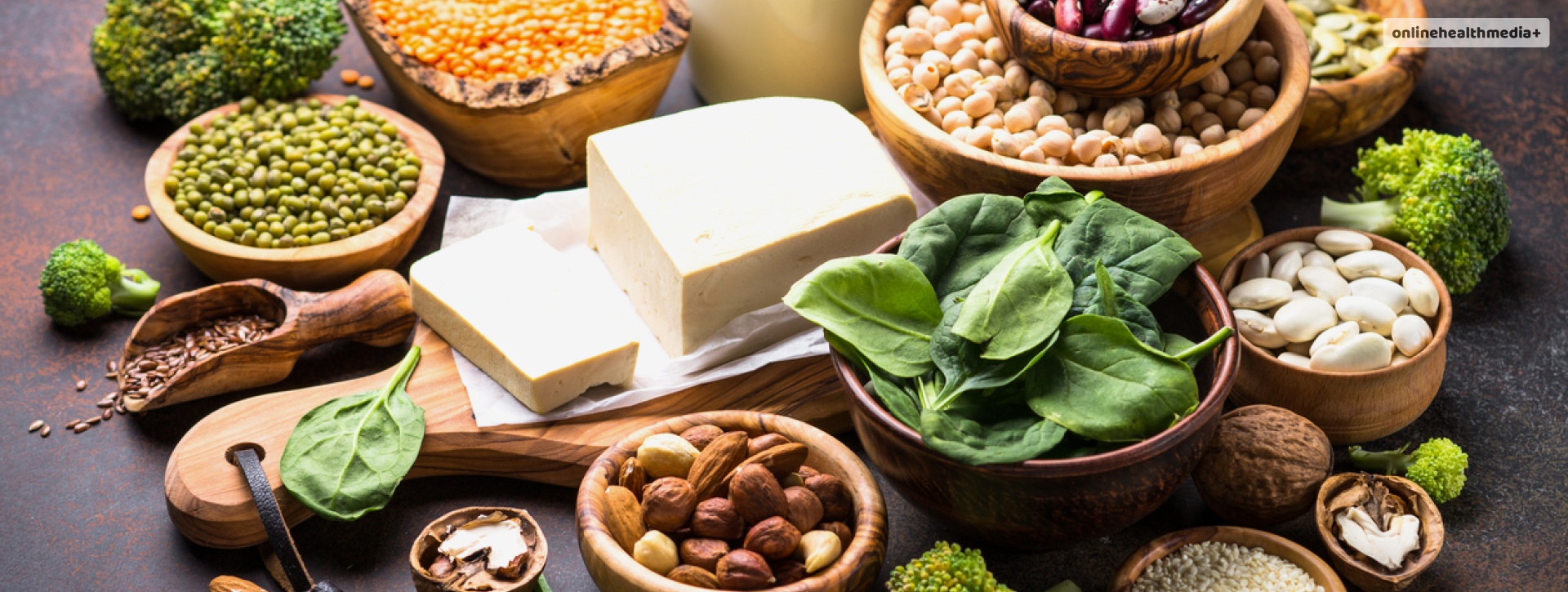Macrobiotic Diet: The Most Wholesome Diet To Balance It All Out!
A macrobiotic diet is a dietary approach that emphasizes consuming natural, whole foods and achieving balance in one’s life. It is not just a diet but a holistic lifestyle that integrates physical, mental, and spiritual well-being.
The term “macrobiotic” comes from the Greek words “macro,” meaning large or long, and “bios,” meaning life, reflecting the diet’s focus on promoting long and healthy living.
To learn more in detail, read this post till the end.
Contents
Who May Benefit From The Macrobiotic Diet?

The macrobiotic diet, with its focus on whole, natural foods and balance, may offer benefits to certain individuals, particularly those seeking a holistic approach to health and well-being. Here’s a detailed explanation of who might benefit from the macrobiotic diet, how, and why:
1. Individuals With Chronic Health Conditions

Whole, unprocessed foods in a macrobiotic Japanese diet can support overall health. For individuals with conditions like diabetes, heart disease, or obesity, this diet might help manage symptoms and improve overall health markers.
The emphasis on whole grains, vegetables, and plant-based proteins can provide essential nutrients, fiber, and antioxidants, supporting better blood sugar control, cardiovascular health, and weight management. Additionally, the avoidance of processed foods and added sugars aligns with dietary recommendations for managing chronic conditions.
2. People Seeking A Plant-Based Diet
The macrobiotic diet can be adapted to be entirely plant-based, making it attractive to individuals looking for a vegan diet or vegetarian lifestyle.
For those who choose plant-based diets for ethical, environmental, or health reasons, a macrobiotic diet offers a structured way to meet their nutritional needs. It ensures the consumption of diverse plant foods, providing a wide array of vitamins, minerals, and antioxidants.
3. Individuals With Digestive Disorders:

The diet’s emphasis on whole grains and vegetables, along with avoiding processed foods, can support digestive health.
For people with conditions like irritable bowel syndrome (IBS) or inflammatory bowel diseases, avoiding processed foods, dairy, and certain allergens can alleviate digestive distress. Additionally, the diet’s focus on fiber-rich foods supports regular bowel movements and a healthy gut microbiota.
4. Individuals Seeking Mind-Body Balance
The macrobiotic diet food loss measures isn’t just about what you eat; it emphasizes mindful eating, balance, and harmony in life.
For individuals looking to enhance their mental and emotional well-being, the practice of mindful eating and the focus on balance can promote a sense of calm and mindfulness. This holistic approach aligns with practices like meditation and yoga, enhancing overall mental and emotional health.
5. Cancer Patients And Survivors

Some cancer patients and survivors explore macrobiotic diets due to their emphasis on natural, unprocessed foods and their potential to support the body’s overall health.
While scientific evidence is limited, some studies suggest that diets high in whole grains, vegetables, and soy might have protective effects against certain cancers. Additionally, the focus on nutrient-dense foods can support overall health during cancer treatments and aid in recovery.
6. Individuals Seeking Environmental Sustainability
The macrobiotic diet encourages the consumption of locally sourced, seasonal foods, aligning with principles of sustainability.
For individuals concerned about the environmental impact of their dietary choices, a macrobiotic diet offers a way to support local farmers, reduce their carbon footprint, and promote sustainable agriculture. It emphasizes plant-based foods, which generally have a lower environmental impact compared to animal-based foods.
Which Foods Are Included In A Macrobiotic Diet?

A macrobiotic diet food list focuses on whole, natural foods to achieve balance and well-being. While the specifics can vary based on individual preferences and health goals, here’s a detailed explanation of the types of foods typically included in macrobiotic diet recipes:
1. Whole Grains
Whole grains form the foundation of a macrobiotic diet. Brown rice is often the staple, but other grains like barley, millet, quinoa, and whole wheat are also used. These grains provide complex carbohydrates, fiber, and essential nutrients.
Grains are usually soaked, rinsed, and cooked thoroughly. Cooking methods like boiling, steaming, and pressure cooking are preferred to preserve nutrients.
2. Vegetables
Vegetables, especially locally grown and seasonal ones, are a significant part of the vegan macrobiotic diet. They provide essential vitamins, minerals, and antioxidants. Common choices include leafy greens, carrots, cabbage, broccoli, cauliflower, and radishes.
Vegetables can be steamed, sautéed, boiled, or lightly stir-fried. Overcooking is avoided to retain their nutritional value.
3. Beans And Legumes
Beans and legumes such as lentils, chickpeas, adzuki beans, and tofu provide plant-based proteins, fiber, and various nutrients.
Beans are soaked, cooked thoroughly, and often used in soups, stews, or salads. Tofu, made from soybeans, is a versatile protein source used in both savory and sweet dishes.
4. Sea Vegetables
Sea vegetables like nori, kombu, wakame, and dulse are rich in minerals and trace elements, particularly iodine. Sea vegetables are used in soups, salads, and side dishes. They are usually soaked and cooked before consumption.
5. Fruits
Fruits, especially those that are locally grown and in season, are included. Common choices include apples, pears, peaches, plums, and berries. Fruits are often consumed fresh and can also be used in desserts or as natural sweeteners in cooking.
6. Nuts And Seeds
Nuts like almonds, walnuts, and seeds such as sesame, pumpkin, and sunflower seeds provide healthy fats, proteins, and minerals.
Nuts and seeds can be consumed raw or lightly toasted. They are often sprinkled on dishes or used in sauces.
7. Healthy Fats
Healthy fats from sources like avocados and cold-pressed oils (such as sesame oil) are used in moderation. Oils are used for sautéing and dressing. Avocados can be sliced and added to salads or used in spreads.
8. Fermented Foods
Fermented foods like miso (fermented soybean paste) and naturally brewed soy sauce provide probiotics and a unique umami flavor.
Miso is used in soups and dressings, while soy sauce is used for seasoning. Fermented pickles are also occasionally included.
9. Herbs And Seasonings
Herbs and seasonings like ginger, garlic, scallions, and seaweed-based seasonings are used to add flavor to dishes.
Fresh or dried herbs are added during cooking, and seaweed seasonings are sprinkled on top of dishes for added taste and nutrition.
10. Beverages
Beverages include teas, especially traditional Japanese teas like green tea and roasted barley tea. Occasionally, light fruit juices and water are consumed. Teas are typically brewed and enjoyed hot or cold. Water is consumed throughout the day to stay hydrated.
Which Foods Should Be Avoided In A Macrobiotic Diet?

For macrobiotic diet rules, the focus is on whole, natural foods that promote balance and well-being. Certain foods, typically processed, refined, or considered energetically imbalanced, are avoided in this dietary approach. Here’s a detailed explanation of foods that are usually avoided in a macrobiotic diet:
1. Processed Foods
Foods that are highly processed, such as fast food, pre-packaged meals, sugary snacks, and processed meats, are avoided. These often contain additives, preservatives, refined sugars, and unhealthy fats.
Processed foods lack vital nutrients and are often high in unhealthy fats, salt, and sugar. Consuming these can disrupt the body’s natural balance and lead to health issues.
2. Refined Grains
Refined grains like white rice, white flour, and products made from them are avoided. These grains have been stripped of their outer layers, which contain essential nutrients and fiber.
Refined grains cause rapid spikes in blood sugar levels, which can lead to energy crashes and disrupt the body’s balance. They lack the nutritional benefits of whole grains.
3. Refined Sugars And Sweeteners
Refined sugars and artificial sweeteners, commonly found in candies, desserts, sodas, and processed foods, are excluded.
Refined sugars contribute to inflammation and are linked to various health issues, including obesity and diabetes. Artificial sweeteners are often chemically processed and can disrupt the body’s natural processes.
4. Dairy Products
Dairy products, including milk, cheese, butter, and yogurt, are typically avoided. Dairy is considered energetically imbalanced in the macrobiotic philosophy.
Dairy can be difficult to digest for many people and may cause issues such as lactose intolerance or allergies. Additionally, dairy products often contain hormones and antibiotics.
5. Processed Meats
Processed meats like sausages, bacon, deli meats, and canned meats contain additives, preservatives, and unhealthy fats. They are linked to various health issues, including cancer and heart disease, due to their high sodium and saturated fat content. This is opposite to the cyclical ketogenic diet and the Dukan diet.
6. Saturated And Trans-Fats
Foods high in saturated and trans fats, such as fried foods, margarine, and hydrogenated oils, are avoided. These fats raise bad cholesterol levels (LDL cholesterol) and lower good cholesterol levels (HDL cholesterol), increasing the risk of heart disease and other health problems.
7. Caffeine And Alcohol
Beverages containing caffeine, such as coffee, black tea, and energy drinks, as well as alcoholic beverages, are often limited or avoided.
Caffeine and alcohol can disrupt sleep patterns, dehydrate the body, and affect overall well-being. They might also interfere with the body’s natural balance.
8. Certain Vegetables And Fruits (Depending On Philosophy):
Some macrobiotic practitioners avoid nightshade vegetables (such as tomatoes, eggplants, and peppers) and tropical fruits (like bananas and pineapples) due to their supposed energetically imbalanced nature.
According to macrobiotic principles, these foods can disturb the body’s balance. However, the avoidance of these foods is not universally agreed upon within the macrobiotic community.
Important Considerations To Keep In Mind

Adopting a macrobiotic diet requires careful consideration and understanding of its principles. Here are some important considerations to keep in mind for a macrobiotic diet, explained in detail:
1. Individualization
Macrobiotic diets are not one-size-fits-all. Each person has unique dietary needs, health conditions, and cultural preferences. It’s essential to tailor the diet to individual requirements.
Customizing the diet ensures that it meets specific nutritional needs and is sustainable in the long run. A healthcare provider or registered dietitian experienced in macrobiotics can help personalize the diet.
2. Nutritional Balance
Ensuring adequate intake of essential nutrients like protein, vitamins, and minerals is crucial. A well-balanced macrobiotic diet should compensate for nutrients that might be lacking due to restricted food choices.
Imbalances in nutrients can lead to deficiencies and health issues. Working with a healthcare provider or dietitian helps design a balanced diet that meets individual nutritional needs.
3. Mindful Eating
Macrobiotic philosophy emphasizes mindful eating, which means being fully present and aware during meals. Chew food thoroughly, savor flavors, and appreciate the origin of the food.
Mindful eating promotes a healthier relationship with food, aiding digestion and allowing better recognition of satiety cues. It also enhances the overall dining experience and satisfaction.
4. Quality Of Ingredients
Choosing high-quality, organic, and locally sourced ingredients supports both personal health and environmental sustainability.
Quality ingredients are often fresher, contain fewer pesticides, and have a better nutrient profile. Supporting local farmers promotes sustainable agriculture and reduces the carbon footprint.
5. Seasonal And Local Foods
Consuming foods that are in season and locally sourced aligns with macrobiotic principles, promoting harmony with nature and a balanced diet.
Seasonal foods are fresher, tastier, and usually more affordable. They are also naturally adapted to the local climate, supporting overall health.
6. Flexibility
While macrobiotic guidelines exist, it’s essential to remain flexible and adaptable. Striving for perfection can lead to unnecessary stress and rigidity.
Flexibility allows for the enjoyment of occasional treats or participation in social events without guilt. It reduces the risk of developing a negative relationship with food.
7. Supplementation (If Necessary)
Depending on individual health conditions and dietary restrictions, supplementation might be necessary to fill nutrient gaps. Common supplements include vitamin B12, vitamin D, and omega-3 fatty acids.
Supplements can ensure that essential nutrients not readily available in the diet are obtained. Consulting a healthcare provider or dietitian helps determine appropriate supplements and dosages.
8. Professional Guidance
Consulting a healthcare provider or a registered dietitian experienced in macrobiotic nutrition is crucial. They can provide personalized guidance, monitor progress, and address any health concerns.
Professional guidance ensures that the macrobiotic diet is safe, effective, and tailored to individual needs. It helps prevent nutritional deficiencies and promotes overall well-being.
9. Physical Activity
Regular physical activity complements a balanced diet, promoting overall health and fitness. Exercise supports cardiovascular health, muscle strength, and mental well-being. It enhances the benefits of a macrobiotic diet by promoting holistic health.
10. Patience And Adaptation:
Adopting a new way of eating takes time and patience. It’s essential to be patient with the process and be willing to adapt the diet based on personal experiences and feedback from the body.
Being patient allows for the gradual integration of new habits, making it more sustainable in the long term. It also enables individuals to listen to their bodies and make necessary adjustments for optimal health.
Conclusion
A macrobiotic diet is a holistic approach to eating and living, emphasizing whole, natural foods, mindful eating, and balance. While some people find it beneficial, it’s essential to approach it with caution, ensuring that it is nutritionally balanced and suits individual health needs. Consulting a healthcare provider or a registered dietitian is advisable before making significant dietary changes, especially if considering a restrictive diet like macrobiotics.
The macrobiotic diet may benefit individuals seeking a balanced, whole-foods-based lifestyle, especially those with specific health conditions or those looking for a mindful, holistic approach to well-being. Consulting with healthcare professionals and registered dietitians is crucial to tailor the diet to individual needs and ensure optimal health outcomes.
In summary, a macrobiotic diet, while potentially beneficial, requires thoughtful consideration, customization, and mindfulness. By keeping these considerations in mind, individuals can adopt a macrobiotic lifestyle that is balanced, sustainable, and supportive of overall health and well-being.
Also Read
- The Benefits Of Physiotherapy For Chronic Pain Management.
- Anxiety Got You Feeling Restless? Try Meditation For Anxiety!
- Healing From Within: Harnessing The Body’s Energy In Recovery.



